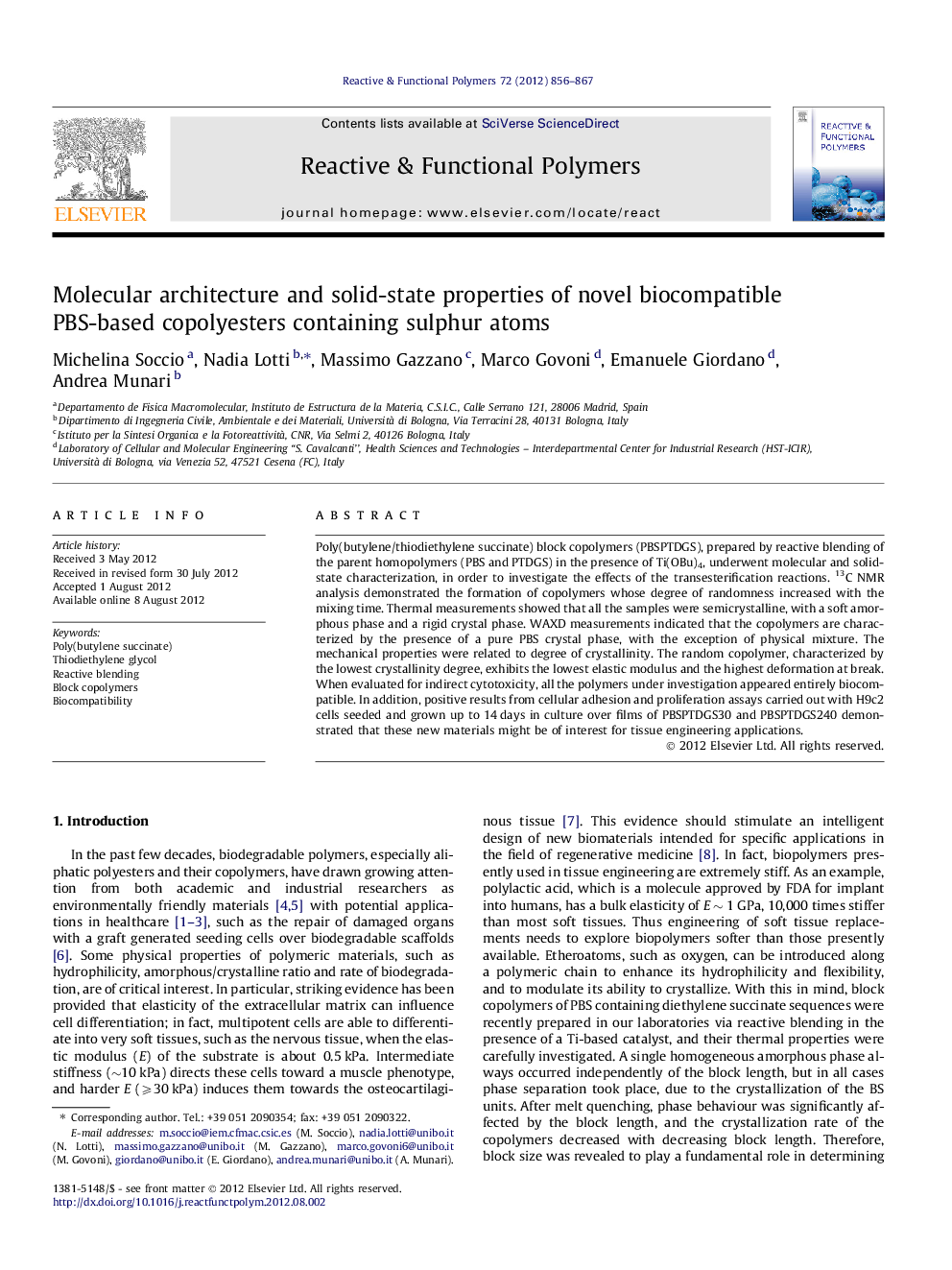| Article ID | Journal | Published Year | Pages | File Type |
|---|---|---|---|---|
| 5210205 | Reactive and Functional Polymers | 2012 | 12 Pages |
Abstract
Poly(butylene/thiodiethylene succinate) block copolymers (PBSPTDGS), prepared by reactive blending of the parent homopolymers (PBS and PTDGS) in the presence of Ti(OBu)4, underwent molecular and solid-state characterization, in order to investigate the effects of the transesterification reactions. 13C NMR analysis demonstrated the formation of copolymers whose degree of randomness increased with the mixing time. Thermal measurements showed that all the samples were semicrystalline, with a soft amorphous phase and a rigid crystal phase. WAXD measurements indicated that the copolymers are characterized by the presence of a pure PBS crystal phase, with the exception of physical mixture. The mechanical properties were related to degree of crystallinity. The random copolymer, characterized by the lowest crystallinity degree, exhibits the lowest elastic modulus and the highest deformation at break. When evaluated for indirect cytotoxicity, all the polymers under investigation appeared entirely biocompatible. In addition, positive results from cellular adhesion and proliferation assays carried out with H9c2 cells seeded and grown up to 14Â days in culture over films of PBSPTDGS30 and PBSPTDGS240 demonstrated that these new materials might be of interest for tissue engineering applications.
Related Topics
Physical Sciences and Engineering
Chemistry
Organic Chemistry
Authors
Michelina Soccio, Nadia Lotti, Massimo Gazzano, Marco Govoni, Emanuele Giordano, Andrea Munari,
